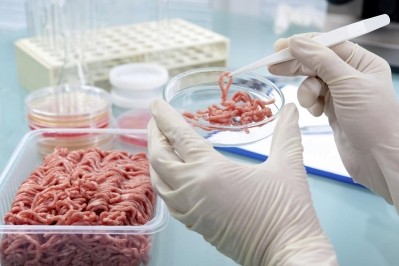Consumers fear modern life will destroy food links

Participants in the FSA study* were concerned that growing trends of convenience foods, on-line grocery shopping, and ‘eating on the go’ could decrease the social and cultural importance of sharing meals.
They worried about a loss of connection with where our food comes from, and with each other, as we cook and eat together less as families and communities.
Our Future Food
The finding was one of a number to emerge from a study commissioned by the FSA to explore ‘Our Food Future’, a study to help understand how changes to the food system might impact on consumers in the UK.
The study aimed to bring the consumer voice into the debate about the future of the food system and collect important evidence to inform future policy, working in partnership with other policy makers, industry, and retailers.
It was commissioned by the FSA, Food Standards Scotland, and Sciencewise and carried out by social research agency TNS BMRB.
“The food supply chain is increasingly complex and already under pressure from a growing world population,” said Steve Wearne, the FSA’s director of policy.
“It’s the FSA’s role to understand how this affects the interests of consumers and engage with people about how the food system should be shaped for the future.”
While there was a wide range of engagement and knowledge levels about the global food system, in general, ‘thinking globally’ about food was new and challenging, to most participants to the study.
They were surprised and concerned to realise they knew so little about the complex global food system.
There was a strong desire to know more about the processes that brought food to our tables, in particular: the links between our food production systems and climate change; the complexity of the global farm to fork process; the role of the food industry in shaping global food trends; and the role of government in working with global industry.
Interestingly, as participants reflected on the global food market, they typically became more concerned about the role of large food businesses. They sought reassurance that limits could be set around the proportion of the food chain influenced by profit, seeing this as potentially detrimental to consumers, public health and the environment.
Participants thought that the food industry’s responsibilities centred on working collaboratively to reduce food waste at all stages of the food chain – from production techniques to retail and marketing practices.
They also desired increased transparency about what is in our food, and about the processes and systems which bring food to our tables.
Participants wanted more than just data provision; they hoped that the food industry would play a critical role in consumer education, raising awareness of global challenges and empowering consumers to make better decisions about food.
Other key findings
Other key findings from the research showed increased clarity on food labels had been widely welcomed by consumers, with many hoping the food industry would provide more information on a wider range of food issues.
Consumers were concerned that access to healthy and nutritious food might become a luxury as pricing prompted people to buy cheaper, processed food. Respondents to the survey also expressed the wish that government and regulators would play a more visible role in the future of food, to ensure that their interests were protected in a more complex world.
The FSA is holding a summit on Thursday (February 18) titled: Our Food Future, which will bring together 200 experts to discuss what the impact of changes to the global food system could be and what we could do to get the best outcome for people in the UK.
* The study comprised several parts: an online quantitative survey of 1,383 UK participants; an online qualitative forum with 22 participants; and a deliberative public dialogue in London, Cardiff, Edinburgh and Belfast, with each participant engaging in two workshops in their nearest location.



















